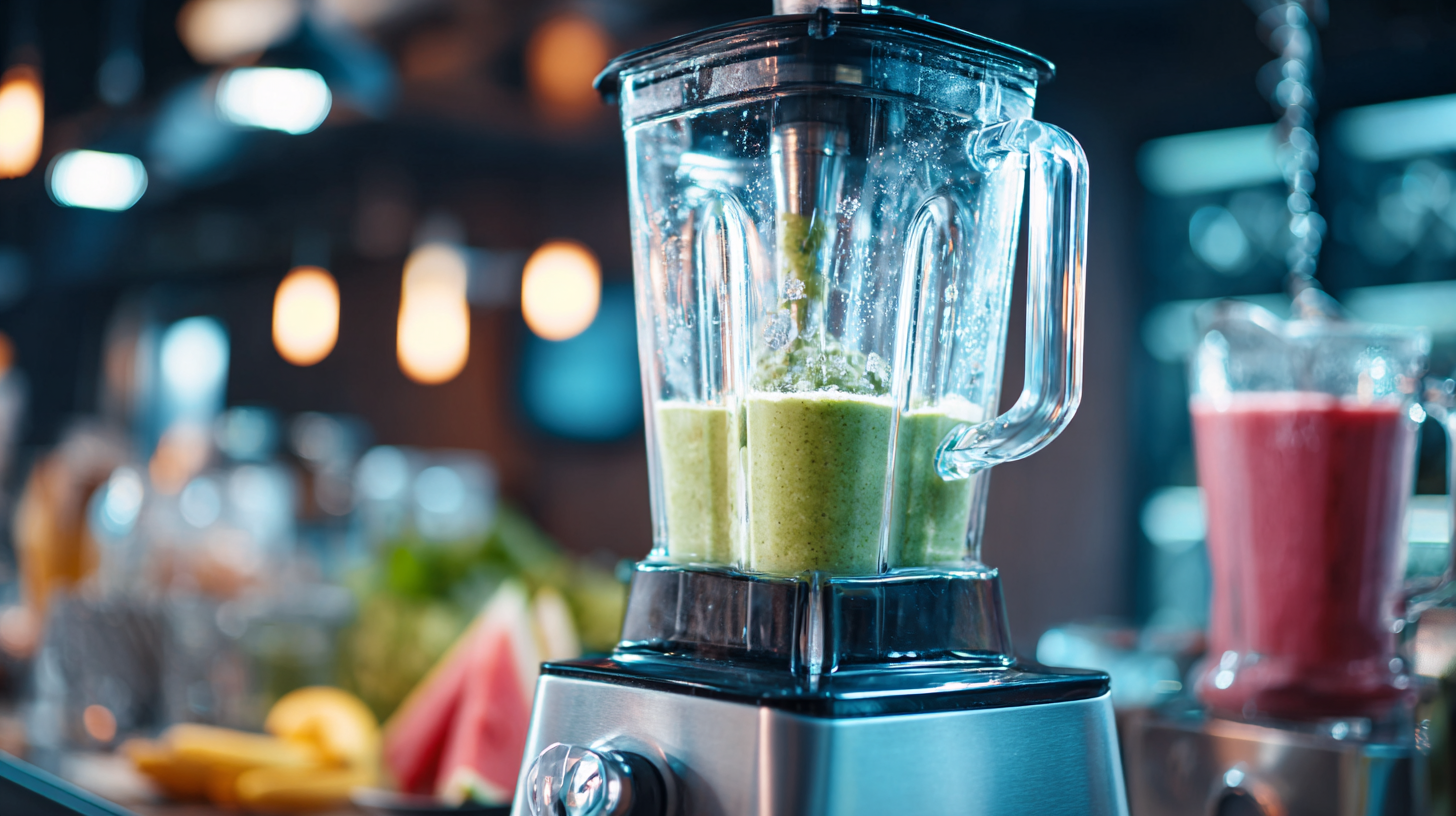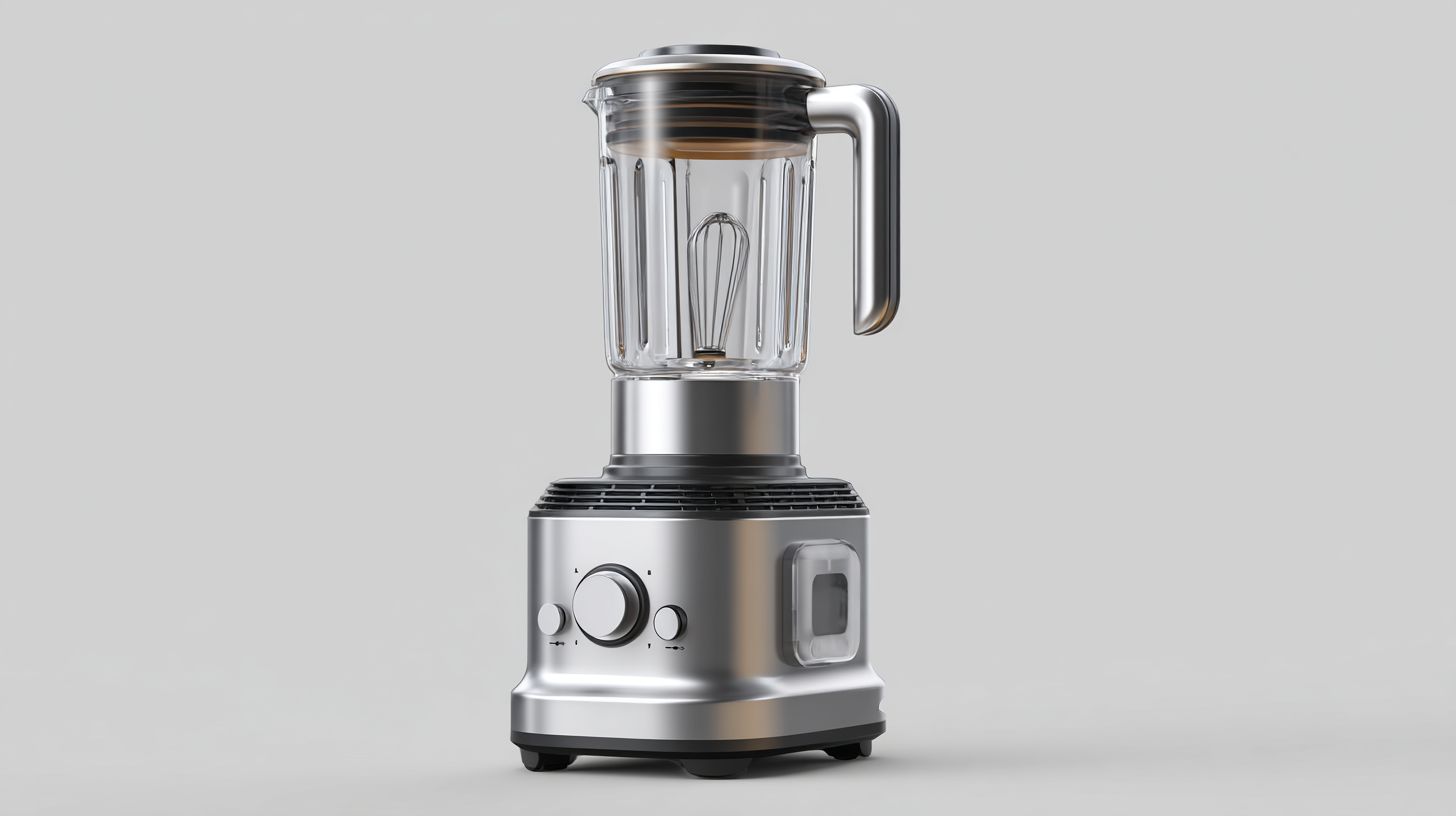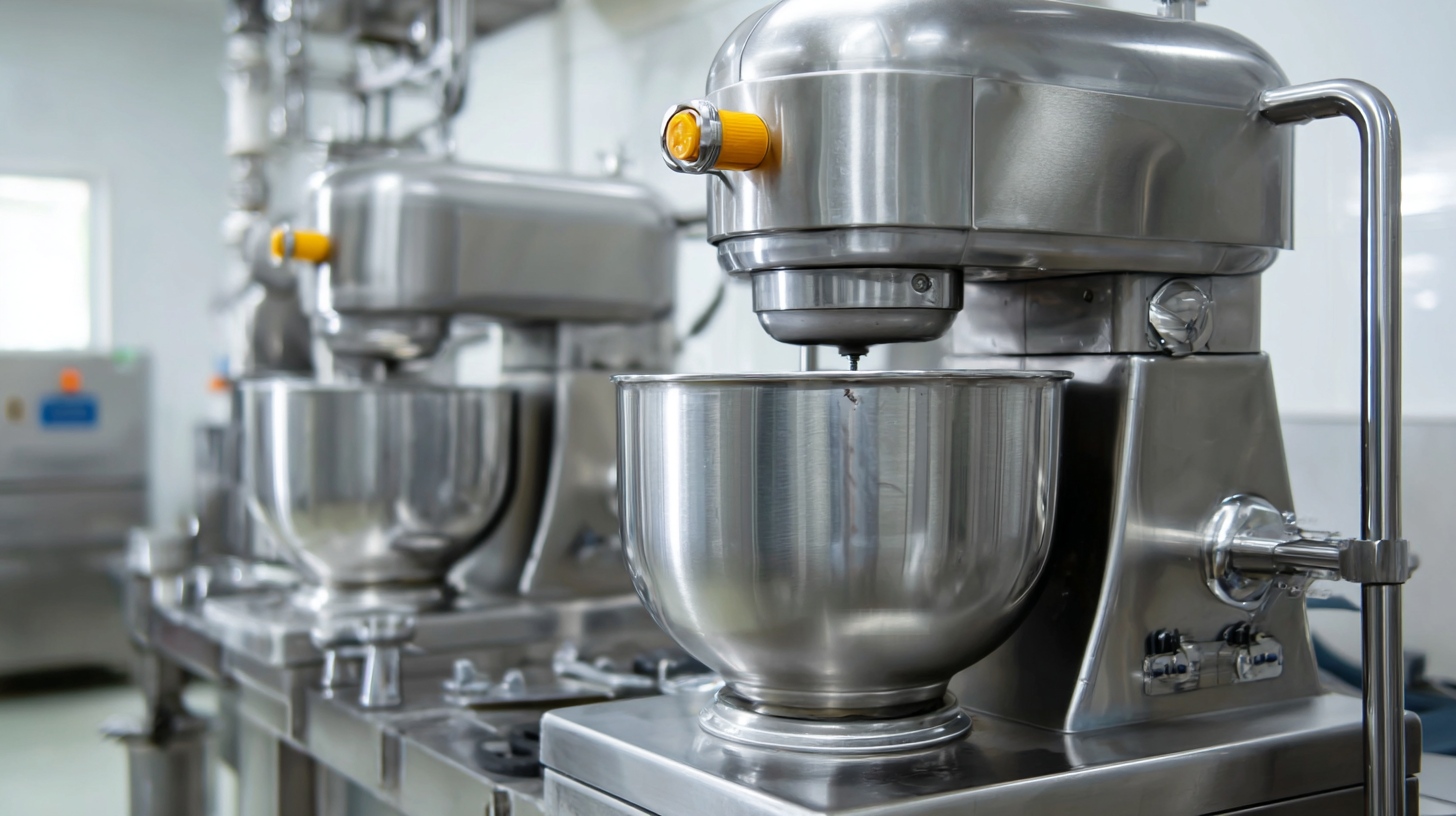
In the fast-evolving landscape of food preparation technology, selecting the right Blender Mixer Machine is crucial for both home chefs and commercial establishments. According to a recent market report by Grand View Research, the global blender market is projected to reach USD 2.4 billion by 2024, reflecting an increasing demand for high-quality blending solutions. With countless manufacturers vying for attention, ensuring quality assurance becomes paramount. A well-constructed Blender Mixer Machine not only enhances efficiency but also significantly impacts the final product's taste and texture. Therefore, a comprehensive checklist for evaluating manufacturers can guide buyers in making informed decisions that align with their quality standards and operational needs. This article aims to equip you with essential criteria to consider when choosing a manufacturer for your blender mixer solutions.

When selecting a blender mixer machine manufacturer, understanding the key industry standards for certifications is crucial for quality assurance. Prominent certifications include ISO 9001, which focuses on quality management systems, and CE marking, which indicates compliance with health, safety, and environmental protection standards in Europe. According to a report by MarketsandMarkets, the global food processing equipment market is expected to reach $95.6 billion by 2025, emphasizing the importance of meeting these standards to ensure product reliability and safety.
Additionally, the National Sanitation Foundation (NSF) certification is critical for manufacturers producing equipment intended for food and beverage applications. This certification ensures that products meet stringent public health standards, particularly in the areas of cleanliness and safety. With the growing emphasis on food safety and quality, manufacturers that adhere to these industry benchmarks are more likely to produce reliable and durable blender mixer machines. As industry standards evolve, staying informed about these certifications will empower businesses to select trustworthy manufacturers, ultimately leading to enhanced customer satisfaction and brand reputation.

Quality assurance plays a pivotal role in the manufacturing of blender mixer machines, ensuring that products meet specific standards and customer expectations. According to a recent report by Markets and Markets, the global kitchen appliance market is projected to reach $265 billion by 2027, highlighting the intense competition among manufacturers. With such growth, the importance of quality assurance cannot be overstated, as it directly influences customer satisfaction and brand reputation.
When selecting a blender mixer manufacturer, consider their quality assurance processes. Look for companies that adhere to internationally recognized standards like ISO 9001, which signifies a commitment to quality management systems. Furthermore, manufacturers that invest in regular testing and inspection of their products are more likely to deliver reliable and efficient machines.
**Tips:** Always ask potential manufacturers about their quality control measures. Check if they employ third-party testing facilities, which can provide an unbiased assessment of product quality. Additionally, inquire about their after-sales support and warranty policies to ensure long-term reliability of your investment. By prioritizing quality assurance, you can make informed decisions that enhance both performance and safety in your kitchen appliances.
When evaluating blender mixer machine manufacturers, it's crucial to scrutinize their credentials and certifications to ensure quality assurance. According to a report by Technavio, the global blender market is projected to grow by over 15% between 2021 and 2025, underscoring the importance of reliability in manufacturing processes. Manufacturers that hold certifications such as ISO 9001, which indicates quality management system adherence, are often more reliable. These certifications not only reflect a commitment to quality but also help ensure that the products meet international standards, providing peace of mind for consumers.
Tips for choosing the right manufacturer include looking for those with industry-specific certifications, such as CE marking for safety compliance in electrical products. Additionally, consider manufacturers that participate in industry associations such as the International Housewares Association, which often have stringent membership requirements that ensure their commitment to quality and innovation. Researching customer reviews, alongside these qualifications, can also provide insights into the manufacturer's consistency in delivering high-quality products.
Finally, pay attention to the manufacturer's history and reputation in the industry. A long track record of compliance with regulations and standards often correlates with reliability. Investing time to evaluate these aspects can lead to a more informed decision, ultimately enhancing your product's performance and longevity in the market.
When selecting a blender mixer machine, quality should be your top priority. The right features can distinguish superior products from the mediocre ones. Look for blenders with high-powered motors, typically ranging from 500 to 1500 watts, as these will ensure that ingredients blend smoothly and efficiently. Additionally, consider models with stainless steel blades; they not only provide durability but also enhance the blending process by maintaining sharper edges over time.
Another important aspect to assess is the jar material. Opt for blenders with BPA-free plastic or glass jars, as these materials are safer and less likely to retain odors or flavors after use. A variety of speed settings can also be beneficial, allowing you to customize the blending process based on the ingredients.
Tips: Always check for a warranty; reputable manufacturers tend to offer at least a one-year guarantee, indicating their confidence in product quality. Additionally, reading customer reviews can offer real-world insights into the blender's performance and durability, helping you make an informed decision.

When selecting a blender mixer machine manufacturer, forging strong supplier relationships is paramount to ensuring product quality. According to a report by MarketsandMarkets, the global kitchen appliances market is projected to reach $210.44 billion by 2026, driven largely by the rise in health consciousness among consumers. This trend emphasizes the necessity for manufacturers to collaborate closely with suppliers who excel in quality assurance practices. Manufacturers who prioritize partnerships with reputable suppliers can enhance their production processes, ultimately reflecting in the performance and longevity of their products.
Additionally, a study published in the Journal of Supply Chain Management highlighted that effective supplier relationships lead to a 12% increase in quality metrics and a 15% reduction in production costs. This underscores the strategic importance of selecting suppliers not just based on price, but also on their ability to provide consistent quality. By leveraging data-driven decisions in supplier selection, manufacturers can ensure that their blender mixer machines meet rigorous quality standards while remaining competitive in an increasingly crowded market.
